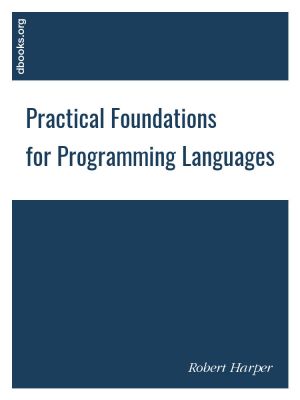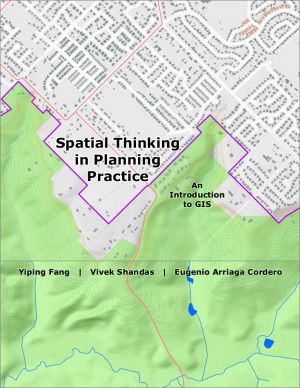
This two-volume book, published open access, brings together leading scholars of constitutional law from twenty-nine European countries to revisit the role of national constitutions at a time when decision-making has increasingly shifted to the European and transnational level. It offers important insights into three areas. First, it explores how c...

This open book deals with Article 7 TEU measures, court proceedings, financial sanctions and the EU Rule of Law Framework to protect EU values with a particular focus on checks and balances in EU Member States. It analyses substantive standards, powers, procedures as well as the consequences and implications of the various instruments. It combines ...

Types are the central organizing principle of the theory of programming languages. Language features are manifestations of type structure. The syntax of a language is governed by the constructs that define its types, and its semantics is determined by the interactions among those constructs. The soundness of a language design - the absence of ill-d...

This book seeks to identify the ethical spirit of European Union (EU) law, a context in which we can observe a trend towards increasing references to the terms 'ethics' and 'morality.' This aspect is all the more important because EU law is now affecting more and more areas of national law, including such sensitive ones as the p...

This book contains the joint proceedings of the Winter School of Hakodate (WSH) 2011 held in Hakodate, Japan, March 15–16, 2011, and the 6th International Workshop on Natural Computing (6th IWNC) held in Tokyo, Japan, March 28–30, 2012, organized by the Special Interest Group of Natural Computing (SIG-NAC), the Japanese Society for Artificial I...

Predicting the time needed to complete a project, task or daily activity can be difficult and people frequently underestimate how long an activity will take. This book sheds light on why and when this happens, what we should do to avoid it and how to give more realistic time predictions. It describes methods for predicting time usage in situations ...

This book offers an analytical presentation of how Europe has created its own version of collective actions. In the last three decades, Europe has seen a remarkable proliferation of collective action legislation, making class actions the most successful export product of the American legal scholarship. While its spread has been surrounded by distru...

This book provides a comprehensive and systematic overview of the main topics of taxation in European law. The sequence of arguments follows an institutional logic, respecting the academic tradition of tax law. It first outlines the general framework of EU institutions, with a particular focus on the set of regulations regarding taxation with refer...

This book was written to serve as an introduction to logic, with in each chapter – if applicable – special emphasis on the interplay between logic and philosophy, mathematics, language and (theoretical) computer science. The reader will not only be provided with an introduction to classical logic, but to philosophical (modal, epistemic, deontic...

What does it take for success in the media business? Creativity, innovation, and performance, of course. Plus experience and good judgment. However, it also requires an understanding of the principles and tools of management. This book summarizes the major dimensions of a business school curriculum and applies them to the entire media, media-tech, ...

There is agency in all we do: thinking, doing, or making. We invent a tune, play, or use it to celebrate an occasion. Or we make a conceptual leap and ask more abstract questions about the conditions for agency. They include autonomy and self-appraisal, each contested by arguments immersing us in circumstances we don't control. But can it be t...

The goals of this textbook are to help students acquire the technical skills of using software and managing a database, and develop research skills of collecting data, analyzing information and presenting results. We emphasize that the need to investigate the potential and practicality of GIS technologies in a typical planning setting and evaluate ...

This open book examines from a variety of perspectives the disappearance of moral content and ethical judgment from the models employed in the formulation of modern economic theory, and some of the papers contain important proposals about how moral judgment could be reintroduced in economic theory. The chapters collected in this volume result from ...

Previously, artificial neural networks have been used to capture only the informal properties of music. However, cognitive scientist Michael Dawson found that by training artificial neural networks to make basic judgments concerning tonal music, such as identifying the tonic of a scale or the quality of a musical chord, the networks revealed formal...

Are games worthy of academic attention? Can they be used effectively in the classroom, in the research laboratory, as an innovative design tool, as a persuasive political weapon? Game Mods: Design Theory and Criticism aims to answer these and more questions. It features chapters by authors chosen from around the world, representing fields as divers...

Our purpose in this book is twofold. First, we introduce the basic skill set and knowledge base used by practicing instructional designers. We do this through chapters contributed by experts in the field who have either academic, research-based backgrounds, or practical, on-the-job experience (or both). Our goal is that students in introductory ins...

Rules and Laws for Civil Actions is an open-access resource for law students containing the U.S. Constitution, Federal Rules of Civil Procedure, Federal Rules of Evidence, Federal Rules of Appellate Procedure, and selected federal and state statutes. The book was created by a team of faculty members at the University of Iowa College of Law to suppl...
